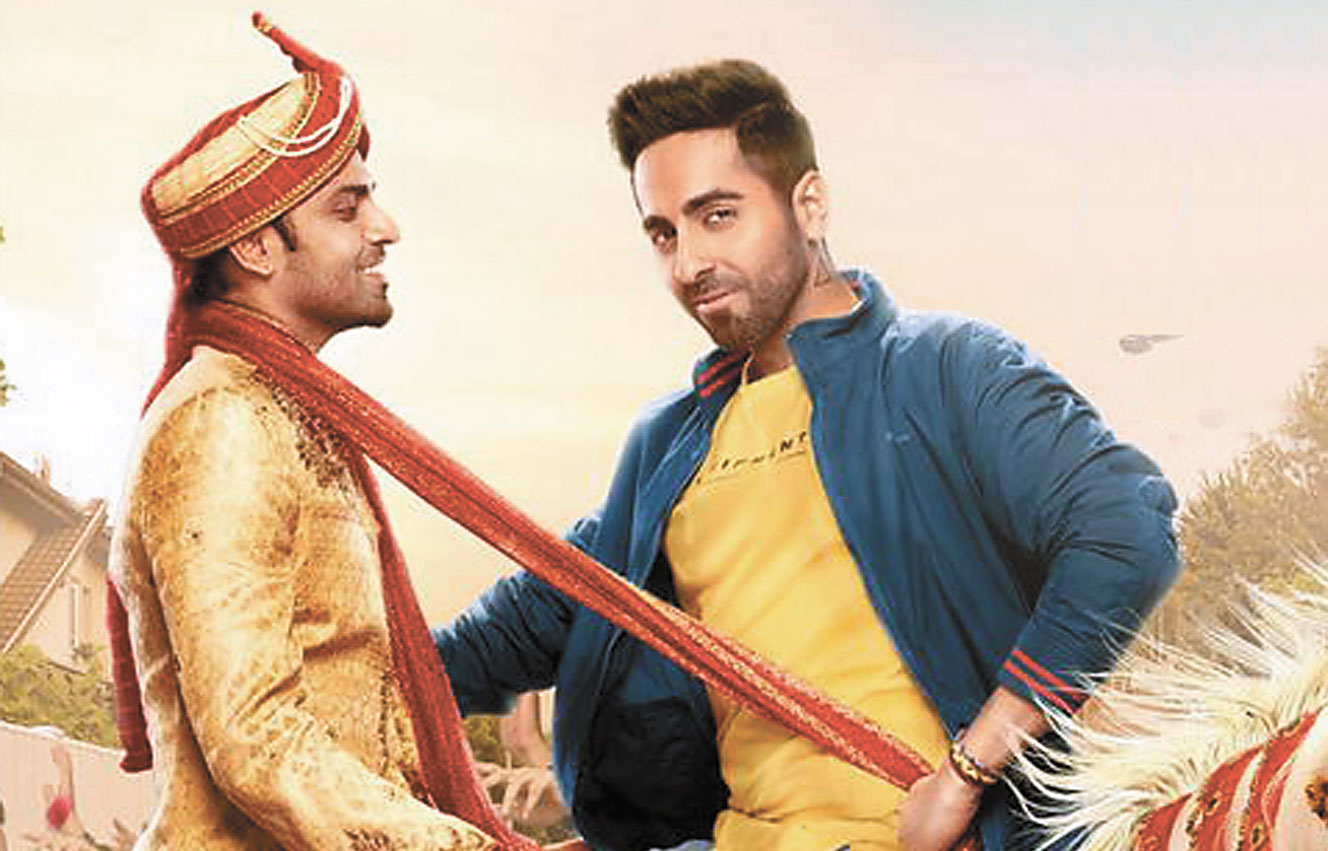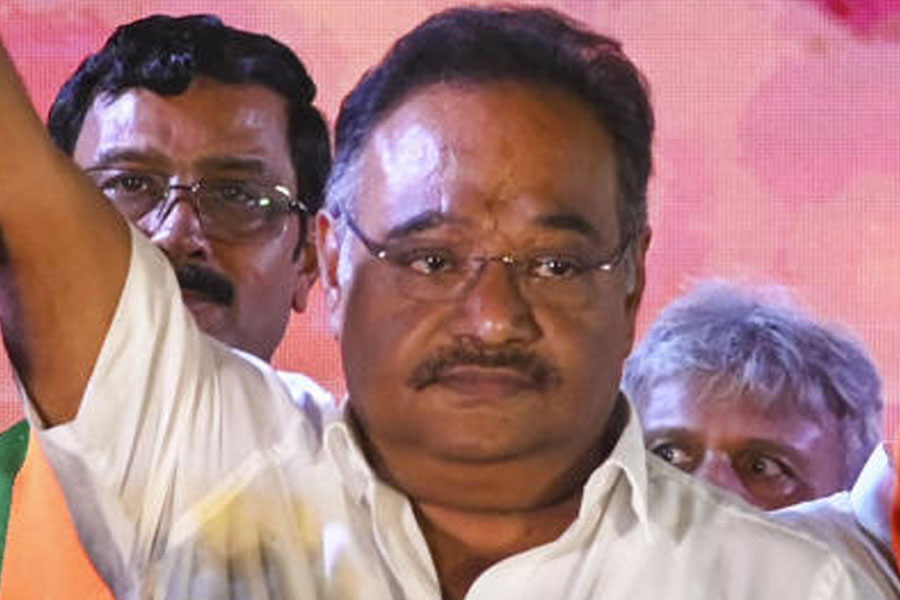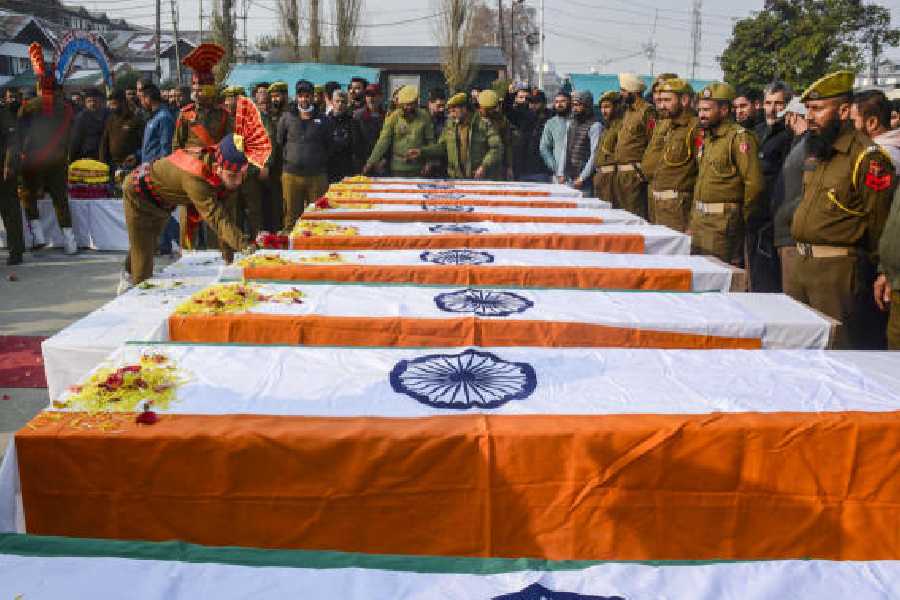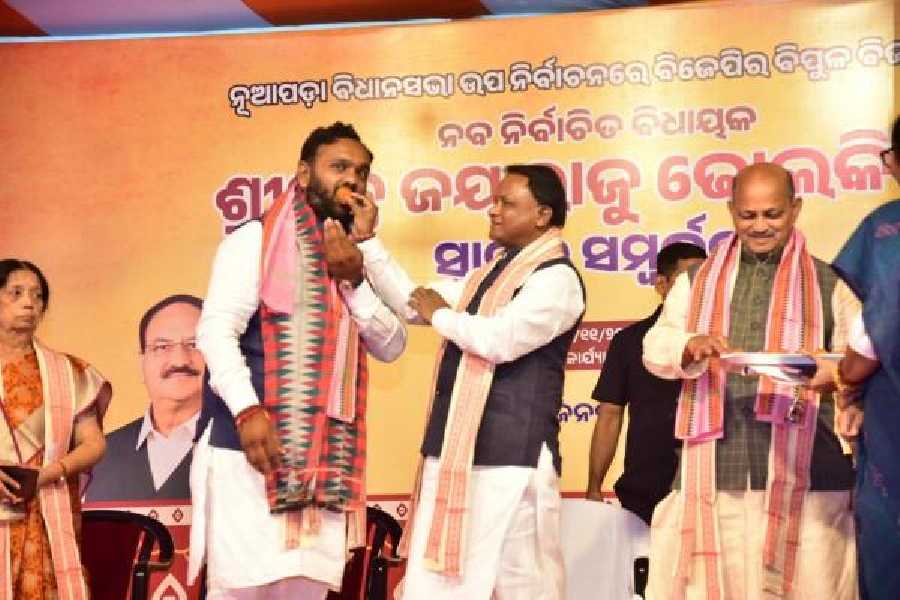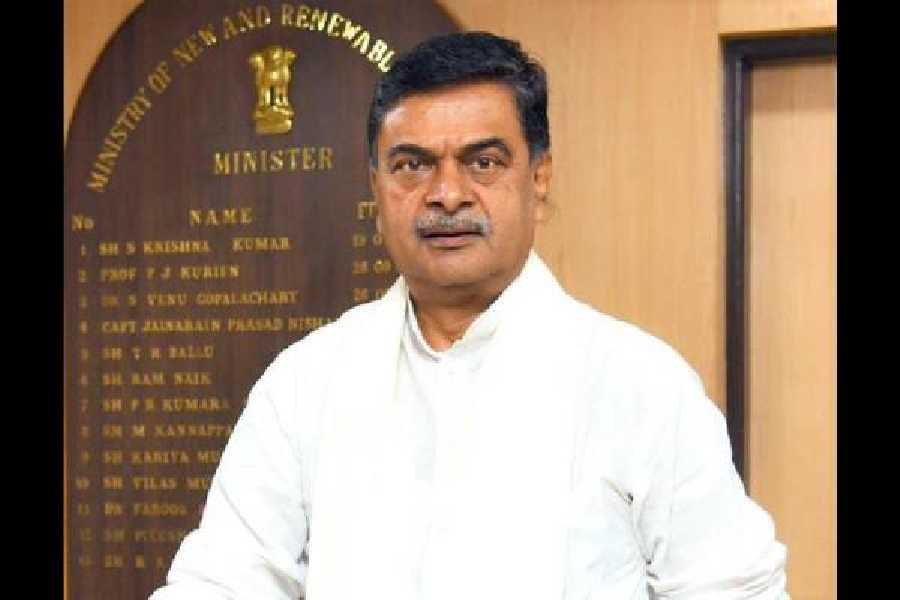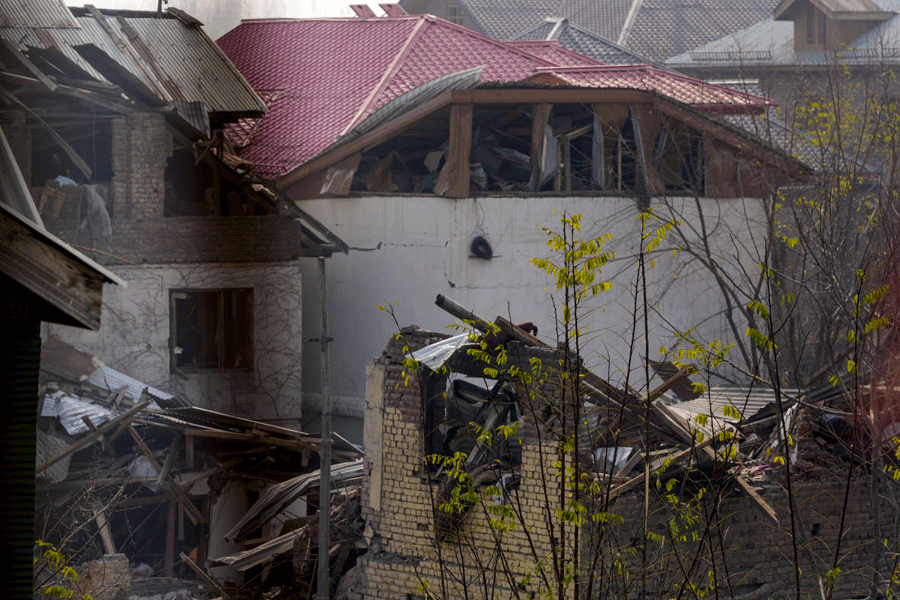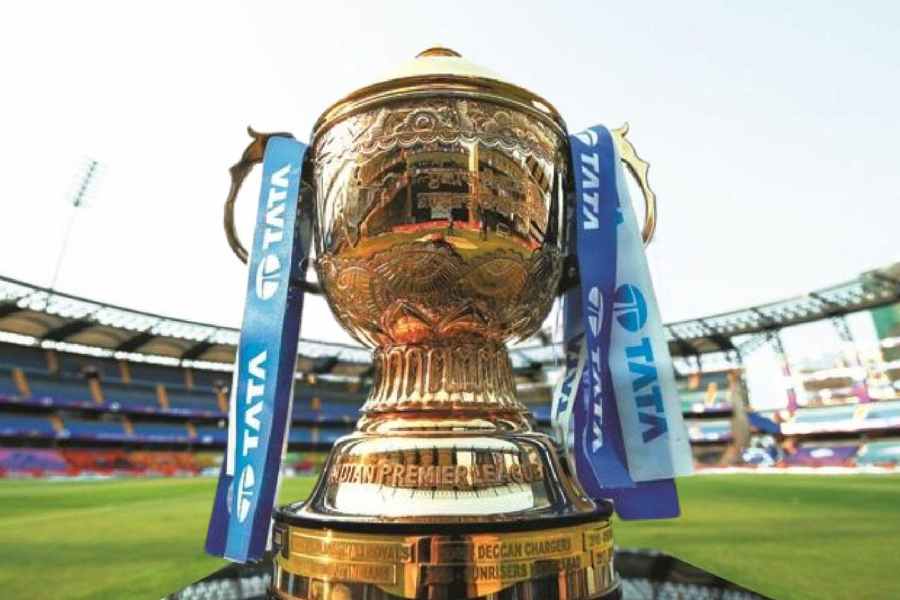Two years ago, Hitesh Kewalya shot into the spotlight with his crackling lines in Shubh Mangal Saavdhan, that roared at the box office on the back of Ayushmann Khurrana acing the role of a young man facing erectile dysfunction. Kewalya now makes his directorial debut with Shubh Mangal Zyada Saavdhan, that has Ayushmann — along with newcomer Jitendra Kumar — playing a gay man and which looks at bringing the prickly subject of homosexuality into mainstream Bollywood.
Last week, Kewalya — along with Ayushmann — was in Calcutta (a city where the filmmaker spent many summer vacations as a child, given it’s his mother’s hometown) to promote the February 21 film that looks all set to not only be a cracker at the box office, but also spur some important conversations. t2 caught up with Hitesh at Hyatt Regency Kolkata on the sensitivity needed for a story like this and why humour was the only way in which he could tell it.
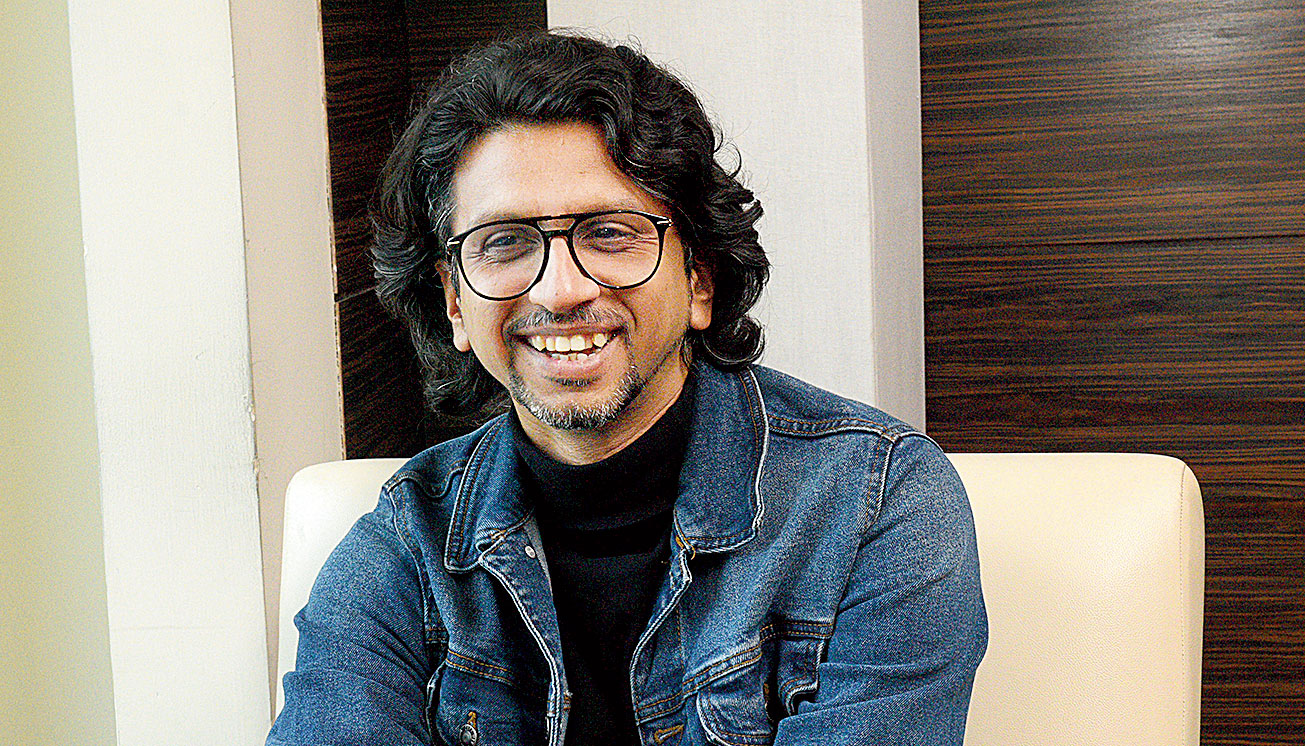
Hitesh Kewalya at Hyatt Regency Kolkata. Picture: Rashbehari Das
The trailer’s already a hit and that’s half the battle won, isn’t it?
I sure hope so! (Laughs) The most that I have heard from people — and that’s been very heartening — is that they are finding it really funny. That it’s full of humour and yet we haven’t lost hold of the sensitivity that is required when it comes to a subject like this. That’s good to hear because we worked extra hard on making it sensitive… whether it was the writing, the casting or how they would look… both Ayushmann and Jitu (Jitendra Kumar) and the whole family. The set-up has been appreciated, which is important for a subject like this… it needs to be accessible to the audience in a way that they understand it. The idea is to reach out to maximum number of people and say what we want to in a heartwarming way.
While writing or shooting, were you apprehensive that you could end up alienating a section of the audience given the prickly subject?
There was a lot of hard work that went into making it sensitive. Frankly speaking, it’s not easy to be sensitive in today’s times (smiles). One can get lost in trying to figure out what is good and what is bad. The way things are currently moving in our society, empathy has become less. There was always doubt, but it was good doubt because it kept me on my toes while making it and the others while they were playing their parts.
What was the trigger point for the story?
It actually started many years ago.
I have grown up in Delhi and north India is known to be patriarchal. Frankly speaking, even the rest of the country is patriarchal, lekin north Indians thoda zyada badnaam ho gaye hain (laughs). I’ve grown up in a macho kind of an environment where men are supposed to behave in a certain way if they have to be considered ‘real men’. I went on to study at NID (National Institute of Design) and that’s where my first interaction with members from the LGBTQ community happened. That changed a lot of things because when you get to know someone as a friend, you learn their stories and struggles. So, the trigger point actually happened 15 years back.
After that I constantly came across people belonging to the community and read up a lot. My wife and I also worked on a music video for this band called 6 Pack Band, comprising members from the transgender community. That campaign won a Cannes award. We spent a large amount of time shooting and interacting with them.
Then I wrote Shubh Mangal Saavdhan, which was largely about what it means to be a man in Indian society today. And from there, a natural doorway opened into this sequel. So even before we started shooting the first film, we kept wondering what if there was a sequel and what would it be about. Himanshu Sharma (writer) suggested homosexuality as a one-liner and that got me immediately excited. That’s when the thinking process started and when the first film became a big success, we started writing the sequel.
Was the idea always to treat the subject with a lightness of touch?
Always. I like humour. I think humour opens up people. As an audience, when you laugh along with someone on screen, you instantly connect. It happens with every emotion, but with humour it’s always instant. Humour has always been an important part of my writing and I felt that to tackle an important subject like this, there was no better way than humour.
No one needs to prove anything and I am not looking at changing anything through this film, but the idea is to at least start a conversation. And you start a conversation about something that you can relate to. If there are scenes, dialogues and emotions in a film that the viewer can relate to, then he or she will start talking about it. We need to start a conversation about things we are uncomfortable talking about.
But there’s a very thin line between being funny and becoming flippant…
I agree there’s a thin line, but when the intent is clear, one doesn’t need to worry. The film is largely about homophobia and to what extent people go to not accept it when someone comes out of the closet. The humour is largely based on that. The good thing is that the film is never apologetic. We never say that, ‘Yeh alag hain’. This is a subject that needs to be part of everyone’s natural conditioning.
I showed the script to some members of the LGBTQ community and asked them to give their unhindered feedback. If they felt it was wrong somewhere, they could tell me straightaway. See, we are humans and we can go wrong, but I didn’t want to with this subject. They gave me a thumbs up and then only we moved ahead.
How much do you think this will help in Bollywood films as a whole becoming sensitive to the portrayal of homosexuality? Even now, mainstream Bollywood is stereotypical in portraying it in the form of effeminate characters who are solely mined for laughs…
I think it’s already evolving and that’s why I think Shubh Mangal Zyada Saavdhan is a very important film to take that forward. I don’t want to add nomenclatures like it’s a path-breaking film and stuff like that, but I will definitely say that it’s an important film. Each film that’s preceded us — whether it’s been arthouse cinema or a short film — has created a step in for Shubh Mangal Zyada Saavdhan. If this film touches a chord with the audience, it will be easier for other filmmakers to come forward and make more films on the subject. That’s how you normalise things.
We are at a juncture where going forward, the industry will be much more aware and much more sensitive in how to correctly portray homosexuality. We need to stop the flow of stereotypical portrayal and divert it towards a more real and human way of portraying people from the LGBTQ community.
Did you cast Ayushmann Khurrana because he was in the first film or was it because he’s aced this genre or simply because he suited the role?
It was a bit of everything. I don’t see anyone else who has shown how eager he is to take on difficult characters that others may be a little iffy about playing. He was part of Shubh Mangal Saavdhan and there definitely was a comfort level. When I was writing the film, I knew that he would portray it sensitively because it’s ingrained in him. We were always on the same wavelength and I automatically thought about him when I wrote the film. He’s one of those rare brave actors who’s proved time and again that he can take on these kind of roles and ace them.
What were the challenges of directing such a tough subject on debut?
Lots! (Laughs) More than anything else, it was a huge responsibility. Handling the ensemble cast and ensuring everyone’s time and talent was showcased properly was a task. Every member of the cast has embraced this film as their own and that’s where my responsibility doubled. For a first film, everything was very difficult, but then again, if it’s not difficult, then it’s not worth doing it (smiles). Even if I say so myself, I think we have a fabulous product in our hands.
Is it safe to say there will be more Shubh Mangal films?
The thought of ‘Can we take it forward?’ is always there. But we will not do it until and unless we have something important and relevant to say. The moment an idea comes, we will work on it but it needs to be something worth talking about. Both the Shubh Mangal films examine the sexuality of a man in today’s India. It can be a straight man or a gay man, but in both films, we’ve worked within the parameters of what it means to be an Indian man. If we can follow the same thread — again a taboo topic that people are uncomfortable with — then we will pursue it. Erectile dysfunction was a tough subject to tackle… homosexuality, even more so, since I had to treat it with humour and also not alienate the family audience.

